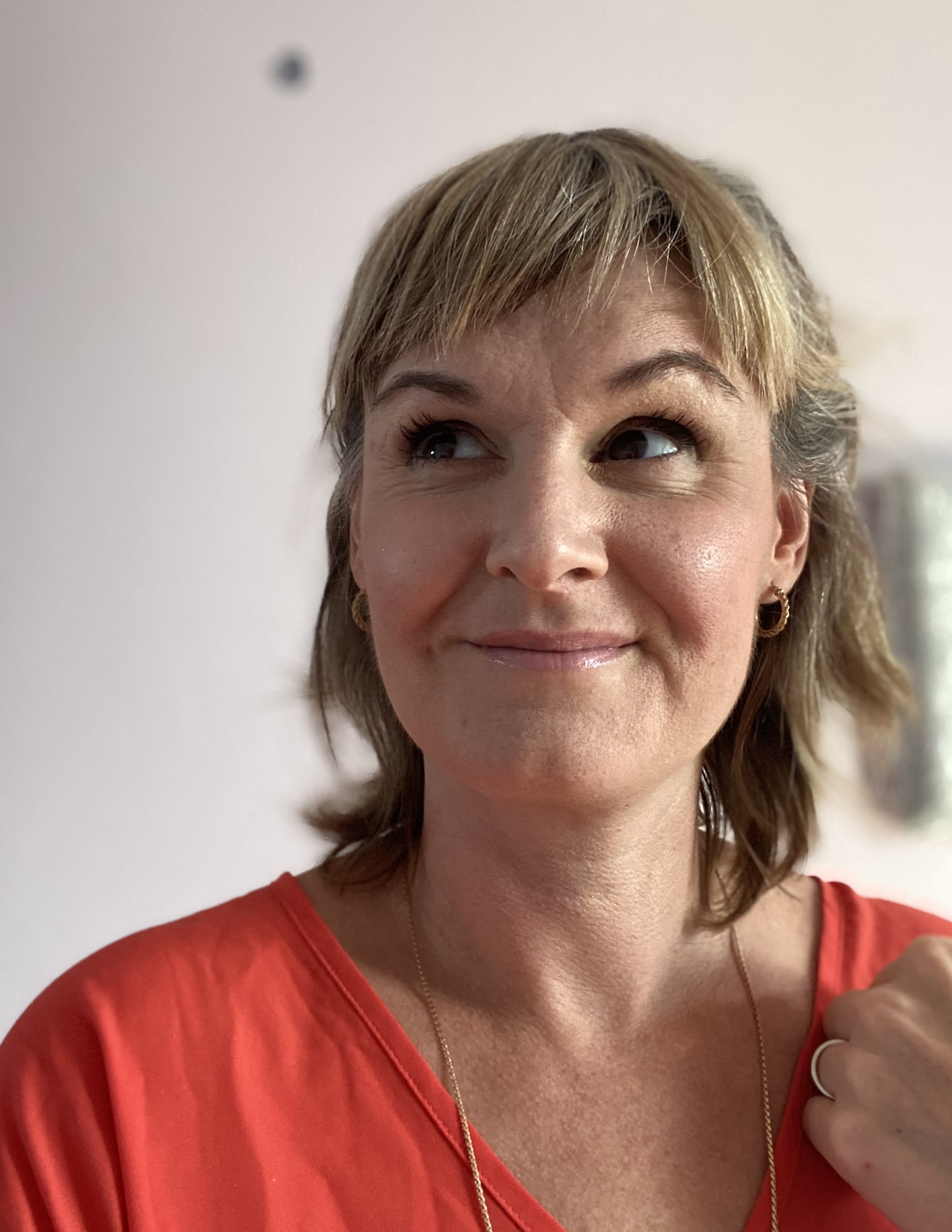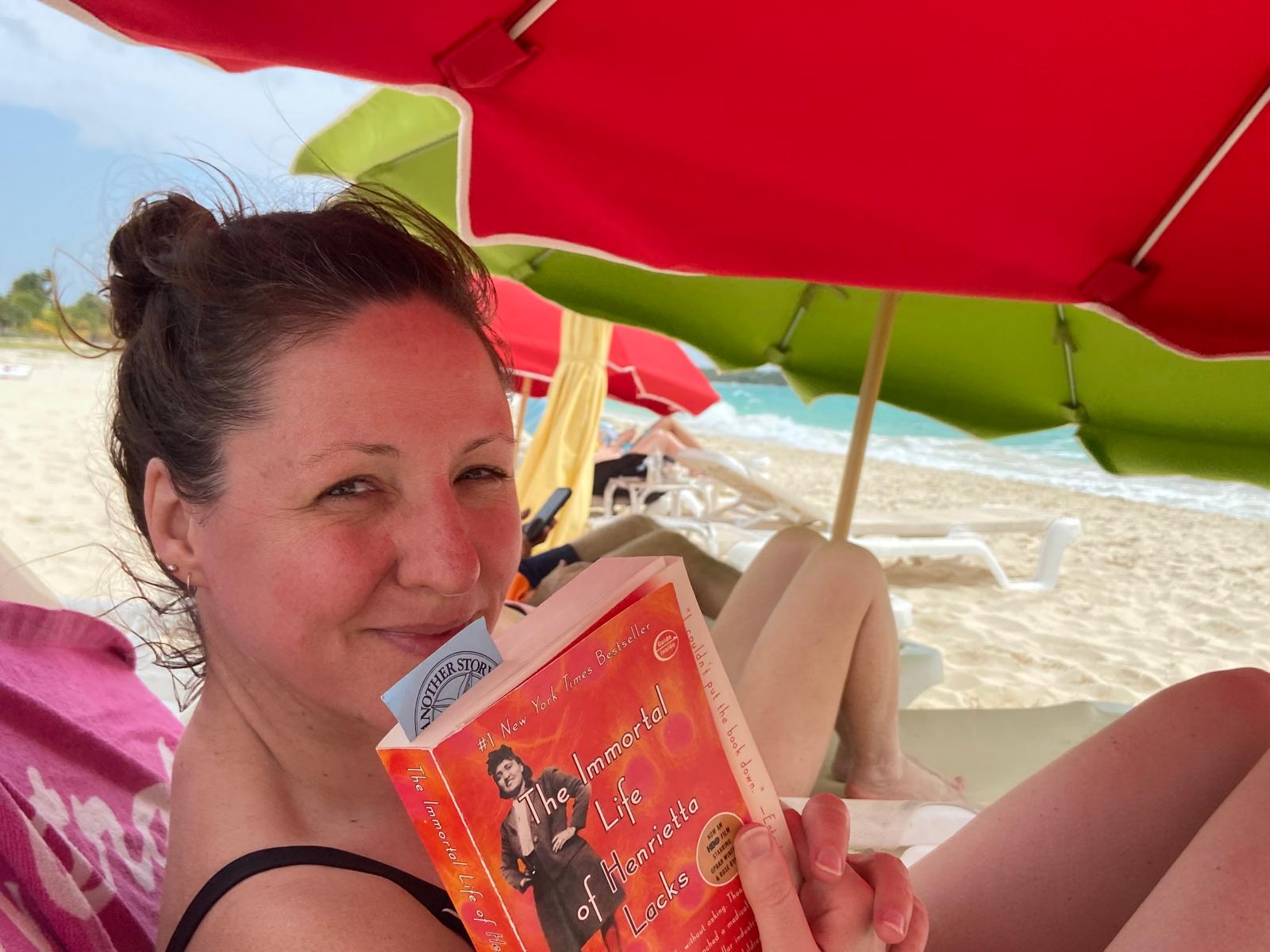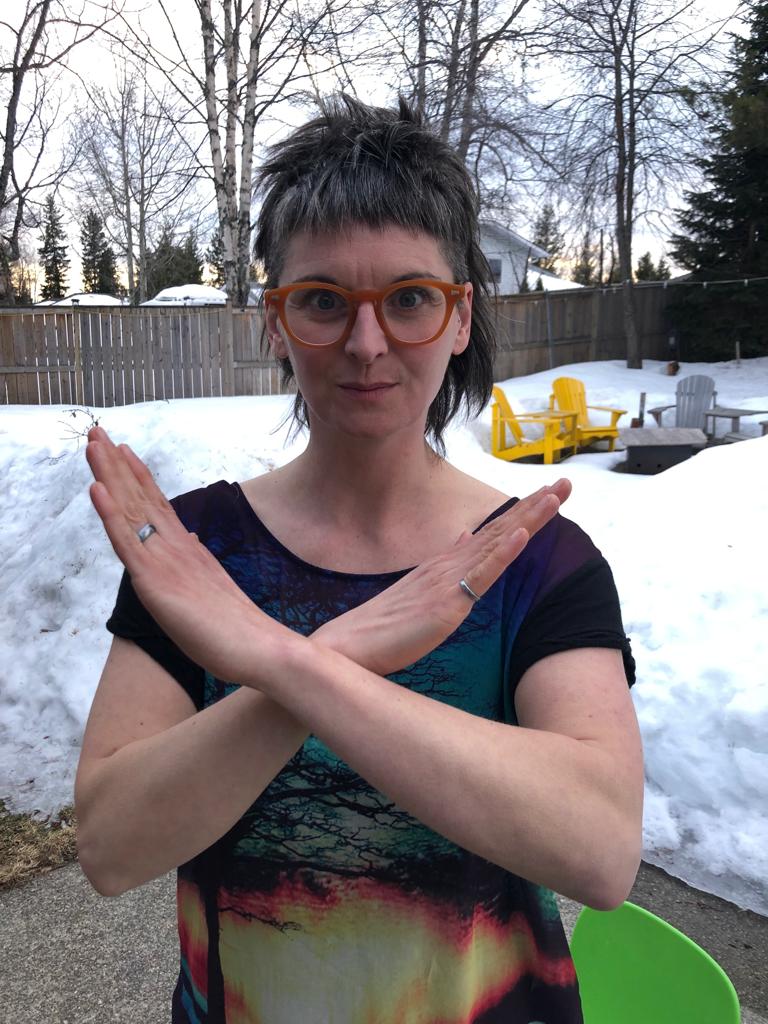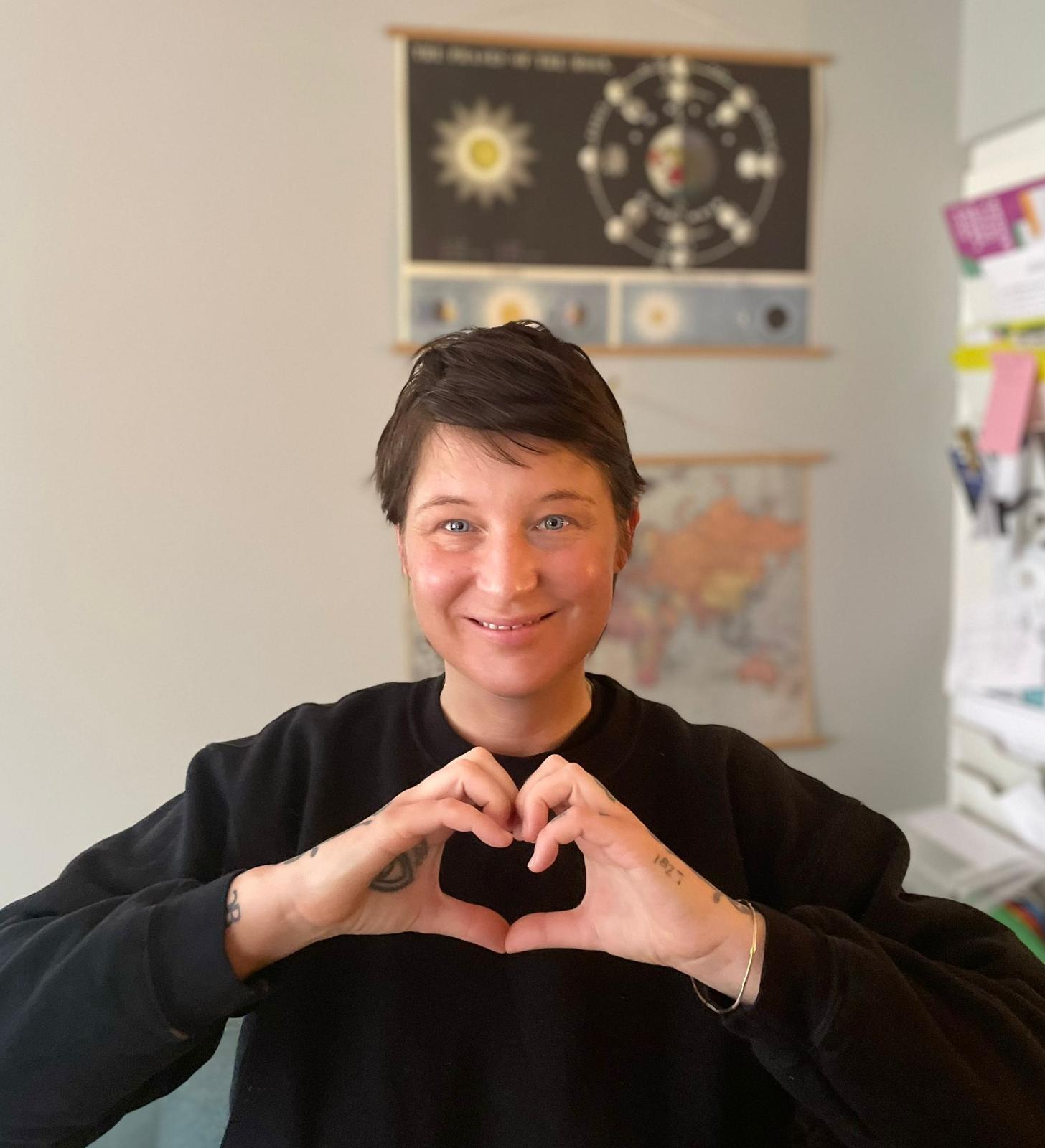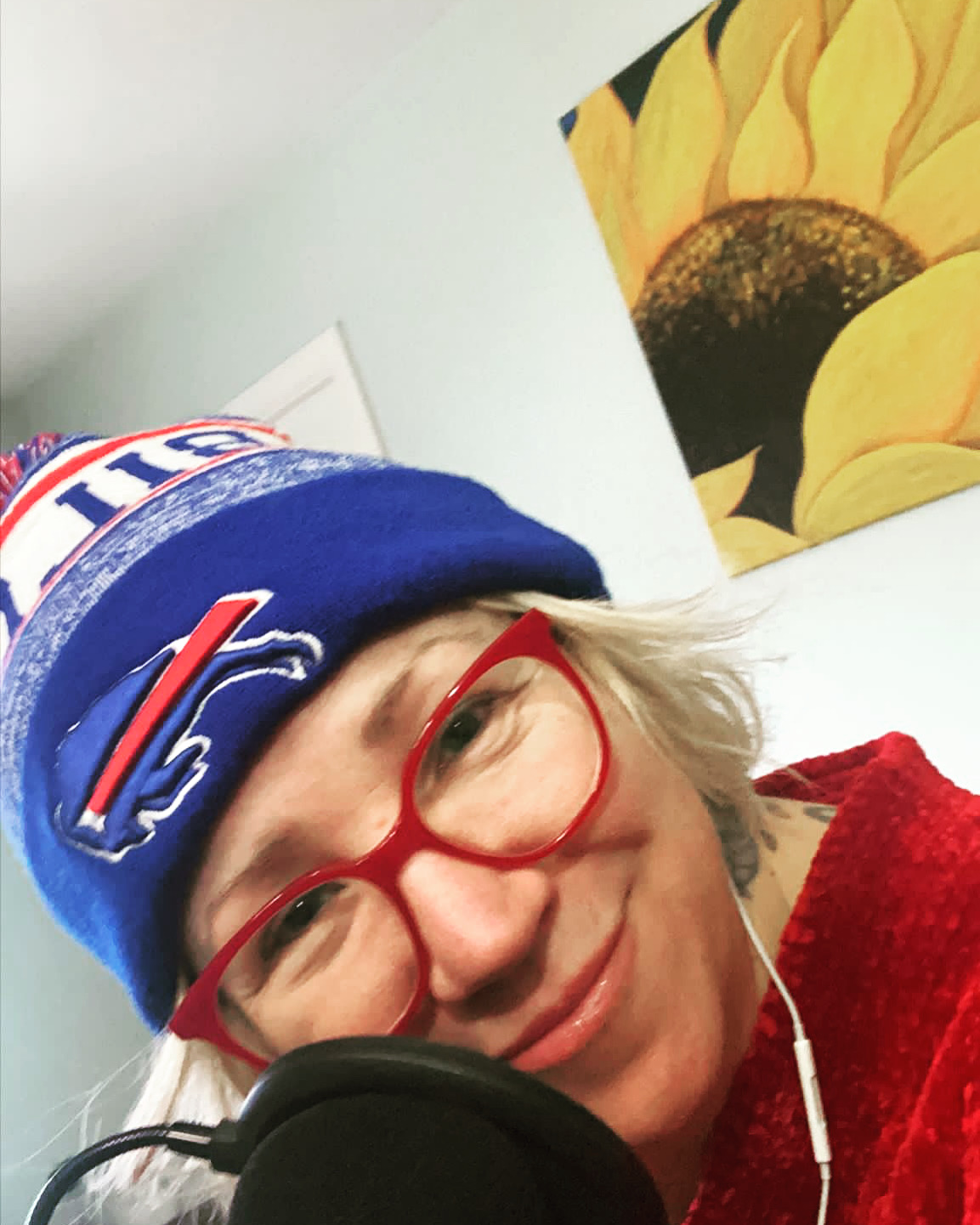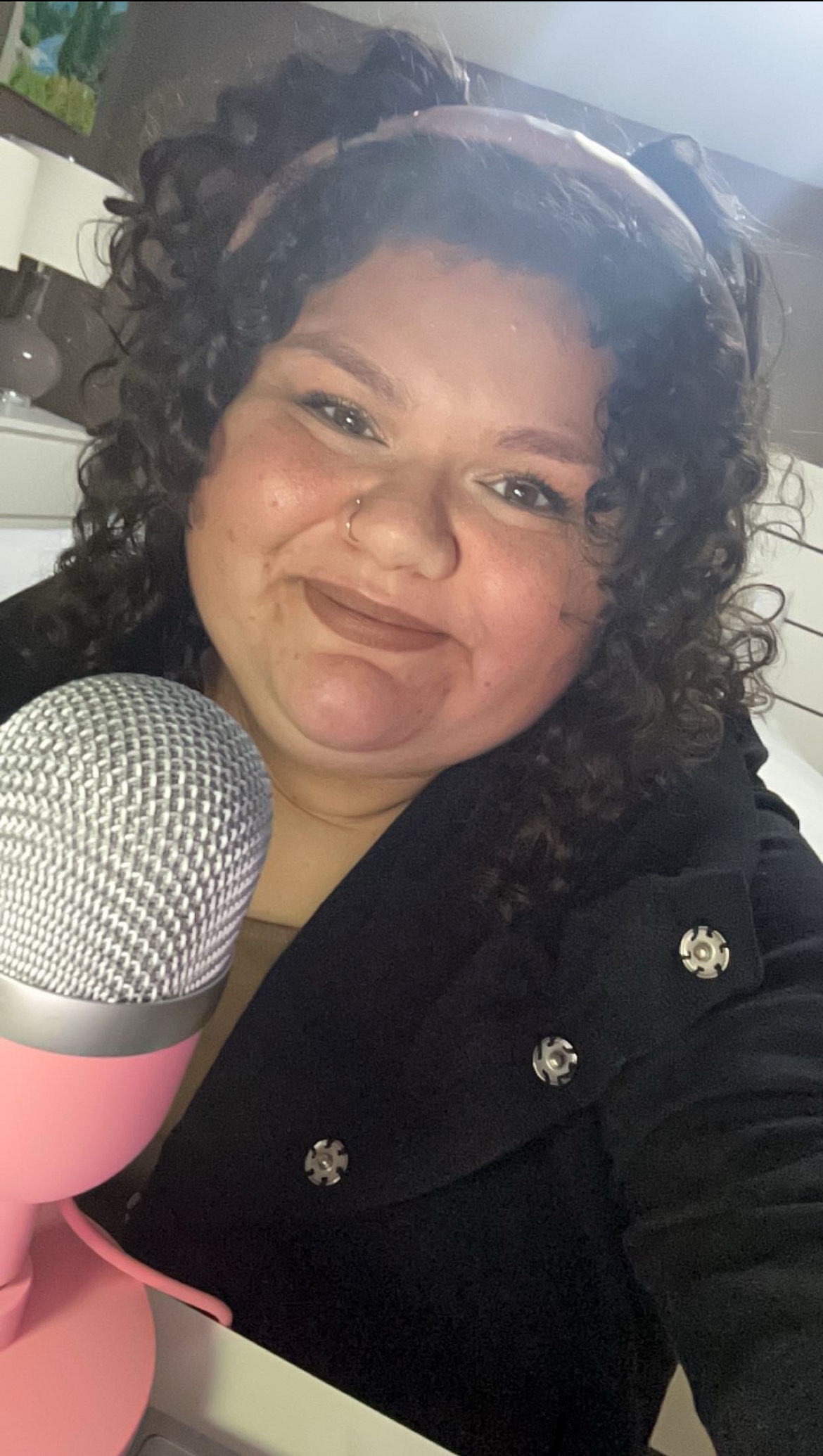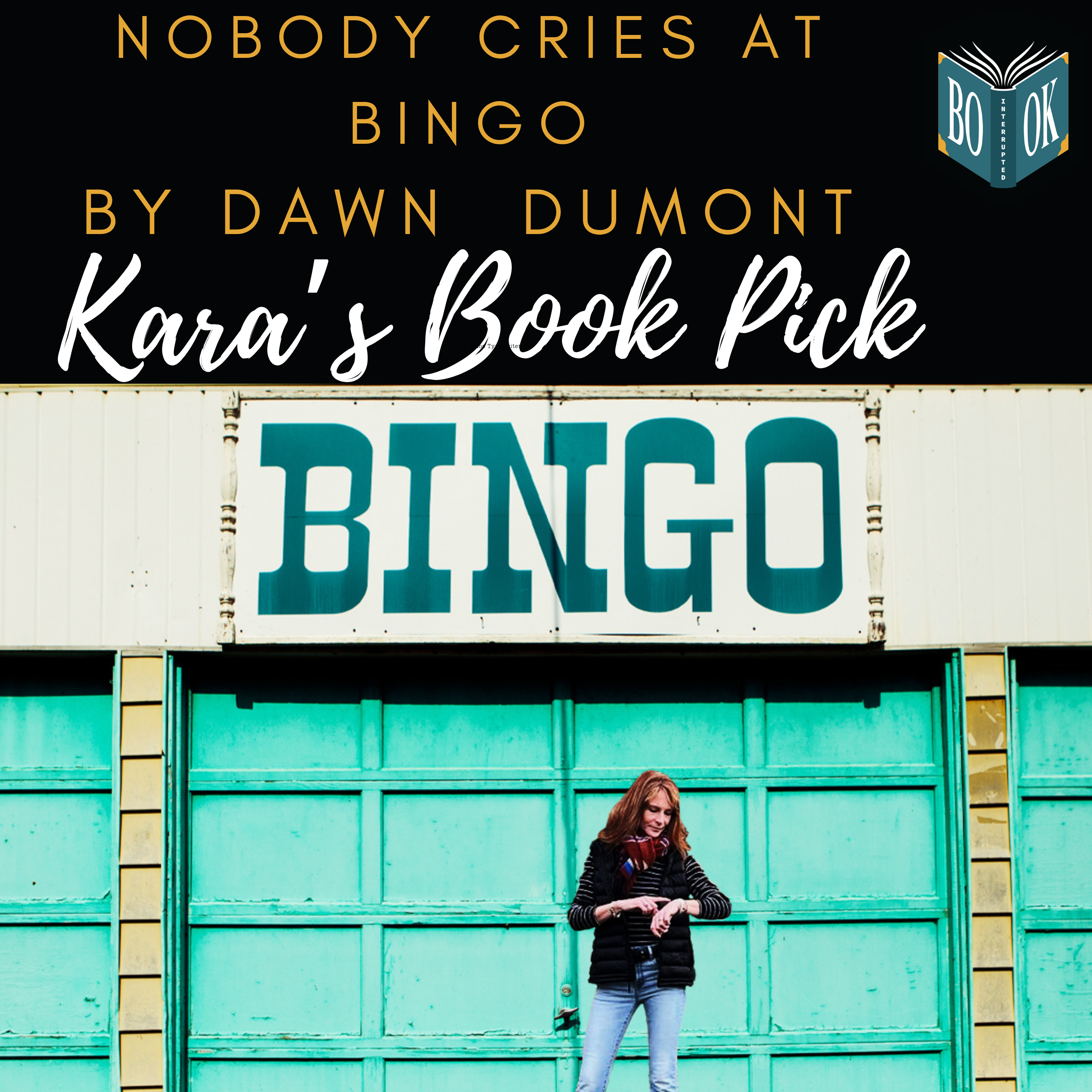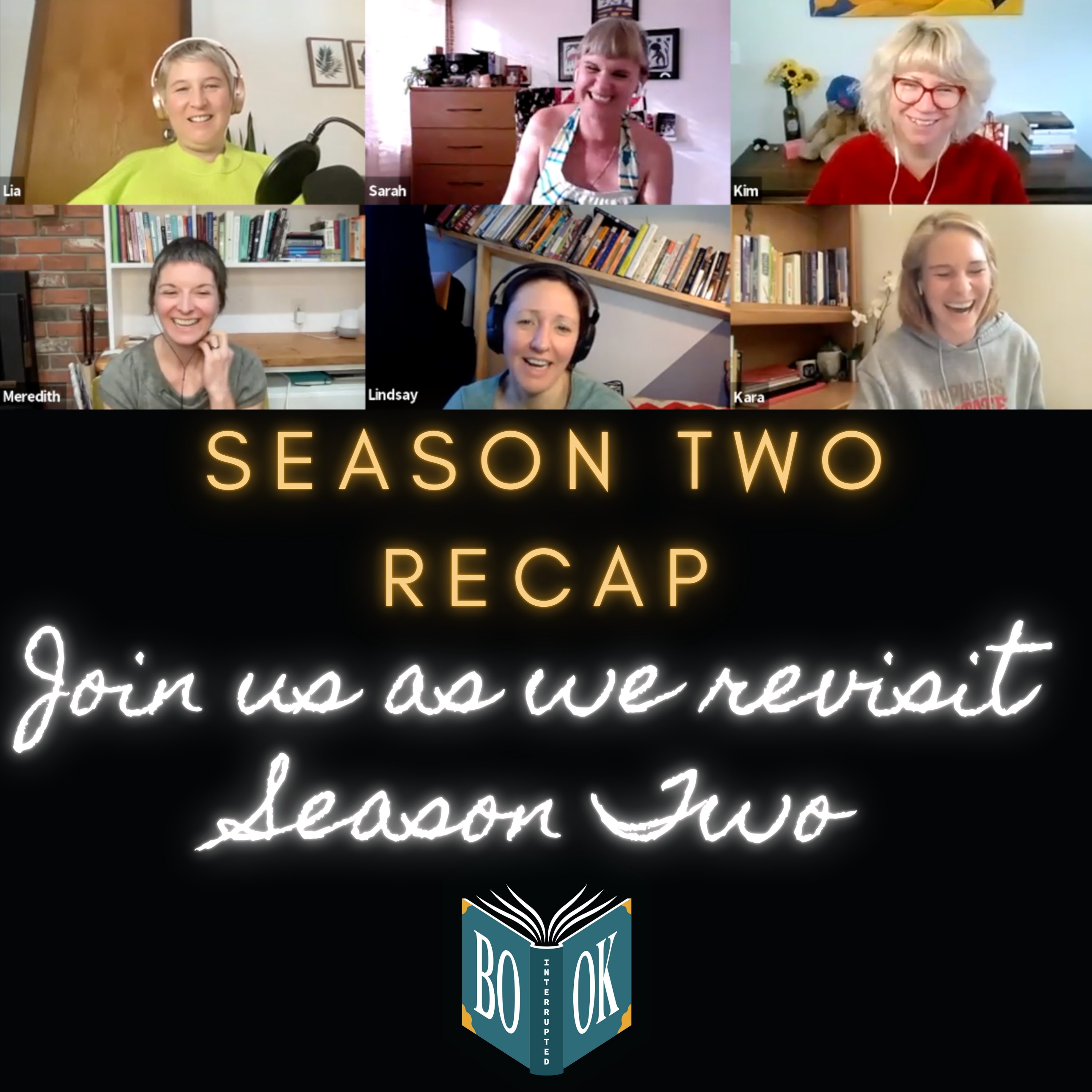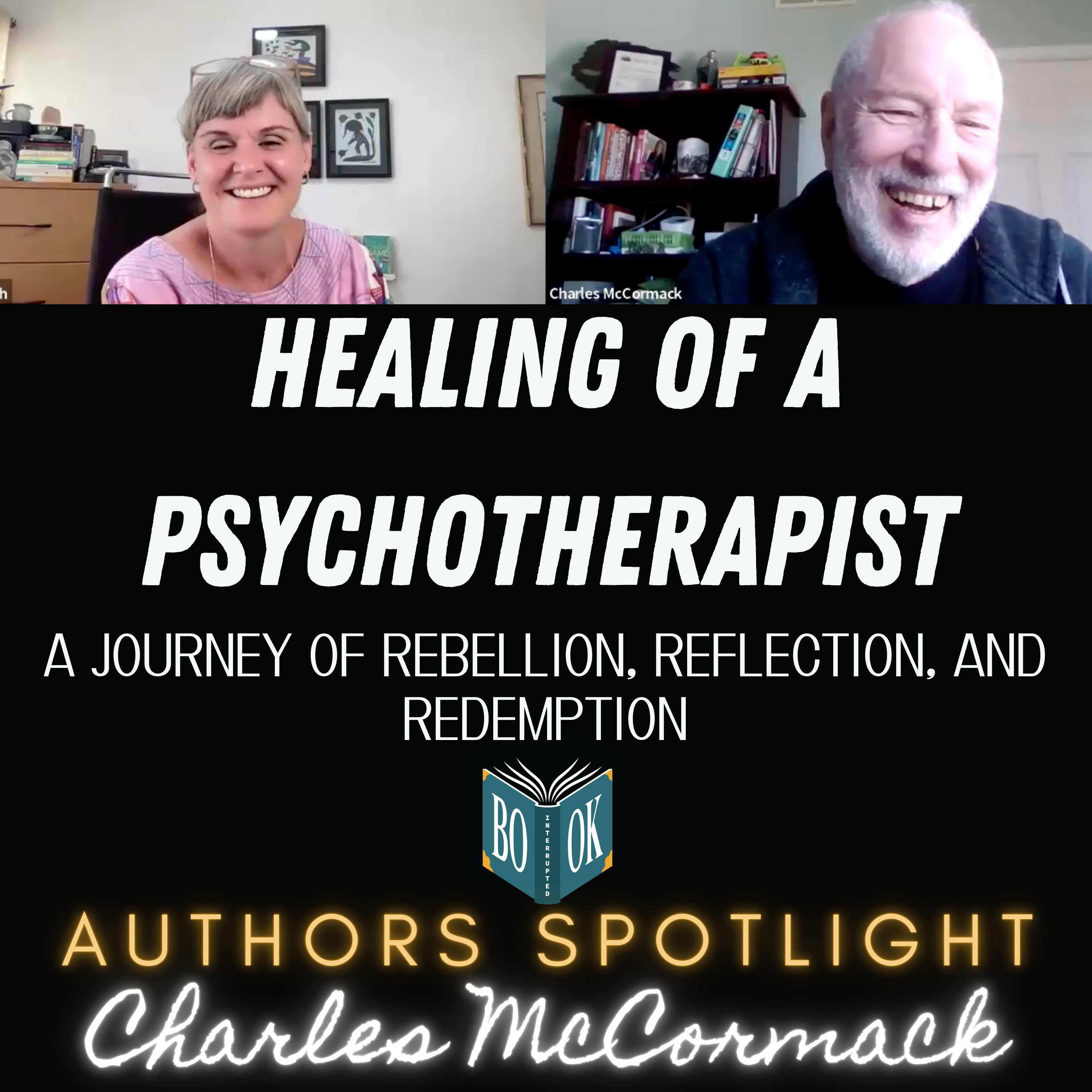Episode Transcript
[00:00:01] Speaker A: Are you looking for more books to read? We've got you covered. Book Interrupted is now doing mini episodes called Author Spotlight, where we showcase authors and let them tell us about their books and why we should read them. You can find them on our Book Interrupted channel. Wherever you get your podcasts.
[00:00:18] Speaker B: Parental guidance is recommended because this episode has mature topics and strong language.
Here are some moments you can look forward to during this episode of Book Interrupted.
[00:00:29] Speaker C: Her kind of self deprecating, very, like, sarcastic humor is totally my jam.
[00:00:36] Speaker A: That passage you read, I was like, that's so sad that the teacher was hitting them. And like, whatever.
[00:00:42] Speaker D: My expectation ruined my experience of reading it.
[00:00:47] Speaker E: Dawn, it's not like she's crying. Cause she's. Oh, she's dramatic. She's a dramatic person, which made her more funny, to be honest.
[00:00:55] Speaker C: And I'm just tired of being, like, advertised at constantly, you know, don't even want to be on the computer.
[00:01:03] Speaker A: Juno. She's also a playwright, so radio plays.
[00:01:07] Speaker E: Oh, can you play this song again? I'm like, no, it's the radio. I. No, I can't. This is what we're listening to. Whatever they put on.
[00:01:15] Speaker D: Yeah. Just the reminders of, like, yeah, how did we make it into our 40s here, ladies?
[00:01:20] Speaker E: See, that's what I'm talking about.
[00:01:22] Speaker C: Our entire family. I think we're just a family of black sheep. We're just a flock of black sheep.
Mind, body, and sound.
[00:01:44] Speaker D: Information is the time trying to learn.
[00:01:48] Speaker F: Something new without being disrespectful.
[00:01:53] Speaker C: Mind, body, and soul.
[00:01:56] Speaker D: Inspiration is with us, and we're gonna.
[00:01:59] Speaker F: Talk it out on Book Interrupted.
[00:02:07] Speaker B: Welcome to Book Interrupted, a book club for busy people to connect and one that celebrates life's interruptions during this book cycle. We're reading Kara's book pick, Nobody Cries at Bingo by Dawn Dermott. Dawn narrates life on the res in rich Technicolor as Dawn emerges from home life, through school life, and into the promise of a great future. Nobody Cries at Bingo is a book that embraces cultural differences and does it with the great traditional medicine of laughter. Let's listen in to this episode's group discussion.
[00:02:39] Speaker D: Was anyone else kind of, like, shocked that it was presented, like, marketed as a novel? And. And I was like, well, it's much more like non fiction.
[00:02:49] Speaker C: It is nonfiction. Yeah.
[00:02:50] Speaker D: Yeah.
[00:02:50] Speaker E: No, it is. It's her life, isn't it?
[00:02:52] Speaker D: Into it. I was like, oh, it's a novel. It's a novel. It's a novel. No, it's kind of like a memoir.
[00:02:57] Speaker C: Yeah, it's kind of like a memoir.
[00:02:59] Speaker D: Yeah.
[00:02:59] Speaker C: I love this book so much. I laugh so hard at this book. Like, I'd be reading it. Like, I have to read it. I have to read. I'd read it out loud to the family, and the kids were like, let's hear more of the book.
[00:03:10] Speaker D: The.
[00:03:10] Speaker C: I was laughing constantly with this book. Her kind of self deprecating, very, like, sarcastic humor is totally my jam. Just so hilarious when she's talking about the teacher. The, like, super angry and abusive teacher. So, okay, can I read a quote?
[00:03:29] Speaker D: That was my favorite chapter.
[00:03:31] Speaker C: This totally, like, epitomizes the whole book. This is her, like, humor in a little snippet. So she gets this teacher who enters them into this reading contest, and they're not winning, and she's, like, really angry at them all the time.
[00:03:44] Speaker E: Also, as a side note, dawn is an amazing reader, and she's a super reader. And she reads, like, all the time. Her whole childhood, all she wants is a book. She's a bookworm.
[00:03:52] Speaker D: Filled with books.
[00:03:53] Speaker C: Yeah, I'm just gonna read two short paragraphs because it's just so hilarious.
Like all good competitors, Ms. Gramiac saw this as a challenge, not a failure. She had declared her intentions, and now she would employ her big city methods. These consisted primarily of yelling and pounding on desks.
Sometimes she was forced to shake a student until the knowledge worked its way into their medulla oblongata. Other times, she relied on vocal motivations, such as by shouting in the face of the student. Stop being so stupid. Some might say her methods were harsh. I felt they were effective. For instance, I never, not even once, failed to do my homework. Many nights I even lay awake, my mind frantically searching for a lesson that might have been overlooked. Who needed sleep when I had stress to keep my young body going?
Look hilarious. She's just like, her methods were unorthodox but effective. Like, I get all my work right. I'm so traumatized, but, like, hugely traumatized.
[00:04:50] Speaker D: Isn't that the same chapter where she starts to say, that was the same year that she started wetting the bed again. But instead of owning it, she would roll her sister in it. And it was presented as if it was her sister Celeste, bed wet, went.
[00:05:03] Speaker C: To doctors.
[00:05:06] Speaker E: Specialist, and she's like, I.
[00:05:08] Speaker C: Don'T remember peeing because you didn't wake.
[00:05:11] Speaker A: Up in the night.
[00:05:12] Speaker C: Push her over into it.
[00:05:15] Speaker D: Good grief.
[00:05:16] Speaker C: Oh, my God.
[00:05:17] Speaker E: Yeah. I was saying when I read the books, the first, third or quarter of the book, I was like, it's okay. And I remember because you asked me, and I was like, I don't know. It's okay. But once you get through the first third, the laugh. The end of the book, like, laugh out loud for me, telling people about it, like, chuckling to myself, like, I love the two thirds of the book. The end was great. The beginning. I was just like, it's okay for me. I was saying in my book report. So this is repeating. You can get through the beginning. You'll finish it. Because then it's funny. She sets herself up in the beginning for all the amusing stories by the.
[00:05:52] Speaker D: End, in my opinion, life experiences.
[00:05:55] Speaker A: Okay, well, I have a confession. Because I only read the first.
The only reason I'm here is because I haven't seen Kara in such a long time. So I wanted to say hi to.
[00:06:03] Speaker C: Kara, but I didn't read the book at all.
[00:06:05] Speaker A: I got to page 20.
[00:06:07] Speaker G: Sorry.
[00:06:07] Speaker A: Yeah, it's been sitting beside my bed. But I started reading it and I was like, yeah, I'll read this. And then I was like, I'm just not into it. And I don't know. And then I picked up a different book, and then I read a different book instead of it. I was like, I just won't come today. But I was like, I haven't seen Kara in so long. I was like, I should, like, not come.
[00:06:25] Speaker C: She didn't read it.
[00:06:26] Speaker D: Wonderful. I know.
[00:06:27] Speaker A: So here I am. And maybe I will actually read it then. Because I was like, I don't know if I'm going to get into this, but if you said the second two thirds.
[00:06:34] Speaker E: Yeah, the first third mayor was asking me. I'm like, I don't know. It's okay. Like, it's fine. It's just about her life. It's okay. It's just like someone telling about her life. But once you get into it, then it's like she's setting up all the little things about herself so that the end part is even more humorous.
[00:06:54] Speaker A: Okay, all right, okay, I'll get into it.
[00:06:56] Speaker C: You have to get her voice into your head. Because when you hear her doing it, like, it's. Everything is tongue and cheek, right? Like, the whole.
[00:07:03] Speaker D: Everything.
[00:07:03] Speaker C: The whole thing.
[00:07:04] Speaker A: Even.
[00:07:04] Speaker C: This is. Even in the beginning when she, like the Mormons come to help them, and they're like, oh, God. And they're like, why are they so nice? And then I also like when she tries to give her sister, like, the wisdom she's figured out on her own. The reason you must give money to the priest is because they're stupid. And her mom's like, excuse me? She's like, well, why can't they get their own money? She's like, confused her, like, mind to be like, it makes no sense that we have to give them our money. There must be a reason. And there must be.
[00:07:32] Speaker D: And this is the reason.
[00:07:33] Speaker C: Like, because they're stupid. And our mom's like, excuse me. Just like.
[00:07:39] Speaker A: But even like, I mean, the chapter you read, that passage you read, I was like, that's so sad that the teacher was hitting them. And like, whatever.
[00:07:48] Speaker D: It was horrible.
[00:07:49] Speaker C: But I think the point is, like, she's looking at her life as. Look at all these things that happen there. If you look at it with humor, you know, laughter being the best medicine, it's absurd. So she's telling a painful story or several painful stories through the lens of humor and stuff. I thought she was hilarious. The whole. For me, it wasn't even the first third front to back. Like, the whole family was laughing at this book because they'd be like, mom, read more of the book. And everyone thinks it was, you know, again, everything's a little bit tongue in cheek. There's bad things that happen. But like, the way she. Her lens delivery, the way she, like, tells it makes it so hilarious.
[00:08:26] Speaker E: There's one point, there's a kid and.
[00:08:27] Speaker C: He'S about to punch one of the girls in the face. He's like, you were not going to punch her in the face. And they're all looking at you being like, of course he was. Isn't that what we're doing? We're playing in the playground, like rough and tumble or whatever, just fighting.
[00:08:38] Speaker E: And.
[00:08:39] Speaker C: And she's like, those teachers don't get us at all.
[00:08:42] Speaker D: At all. Yeah. Similarly, like, the way she was even. Even able to like, make fun of the fact that she's a quite a sensitive kid. Right?
Cries and how she could just like make light on that. But yeah, like you're saying everything is tongue in cheek, very sarcastic delivery on all the things. And pretty much all the things are slightly traumatic.
And it was during the 80s and 90s as well. So that was kind of like a nice little nostalgic piece. But I didn't have the same strong response that Meredith and Sarah had. I almost stayed in the lukewarm Sarah, how you said the first third was or Schweitz when you were saying for the first 20 pages, like, I'm like, it's okay, but I could have easily passed it along and not finished reading it. I just did because it was my book pick and it's like, it wasn't humorous. It's.
[00:09:40] Speaker C: You're just like, why did I pick this book?
[00:09:42] Speaker D: I think I was searching for, well, what is the main point? Like, why as a reader are we being brought on this journey? Because each chapter could have been just on its own.
[00:09:56] Speaker E: Do you know what I mean?
[00:09:57] Speaker D: Like, if they felt like there's no arc and maybe that's okay. And that was part of the reason why I couldn't truly be like this is amazing. Is because I just kept. There was something in the back of my mind being like, well, is this chapter gonna fill me in on the why? You know what I mean?
[00:10:15] Speaker C: Rather than it just being. Painting a portrait of her life, you wanted it to be like, beginning, middle, climax, resolution, whatever.
[00:10:24] Speaker A: Yeah.
[00:10:25] Speaker C: I took English years ago in high school, but there was a formula that they told you you had to write a story as Exactly.
[00:10:32] Speaker E: And that was not this.
[00:10:33] Speaker D: Not this. My expectation ruined my experience of reading it.
[00:10:40] Speaker E: Yeah. It wasn't like a story arc. And you thought it was a novel like this. It was just kind of a series of short stories that were kind of a memoir.
[00:10:47] Speaker D: Yes.
[00:10:47] Speaker E: Is the best way to describe it.
[00:10:49] Speaker A: Yeah.
[00:10:49] Speaker D: Yeah.
[00:10:49] Speaker A: Isn't that kind of like mayor that your book, the graphic novel? Wasn't that. I mean, I didn't finish that.
[00:10:55] Speaker C: I also really enjoyed that too.
[00:10:57] Speaker A: Right.
[00:10:57] Speaker B: Yeah, Similar.
[00:10:58] Speaker A: Yeah. I think I'm like, kara, this is less weird. Okay.
[00:11:02] Speaker E: Meredith was weird.
[00:11:03] Speaker C: I like weird.
[00:11:05] Speaker E: Meredith was like the uncomfortable.
Where this girl's was more like, look at this absurd thing that happened to me.
[00:11:13] Speaker C: Some of hers was uncomfortable and awkward.
[00:11:15] Speaker E: A little bit, but not.
[00:11:16] Speaker C: Some of hers were awkward because you're like, oh, God, why are you doing that?
[00:11:19] Speaker D: So awkward. Like when she would talk to boys.
[00:11:22] Speaker G: Oh, my gosh.
[00:11:25] Speaker D: I was like, no, just wrap it up.
[00:11:27] Speaker C: Everybody's your cousin.
[00:11:29] Speaker G: Like that.
[00:11:29] Speaker C: Everyone. Everyone's your cousin. Don't kiss anybody.
[00:11:33] Speaker D: Just don't even.
[00:11:34] Speaker C: That hot one. I like. She was like, wants to go vacation and stay with her cousins or whatever. And mom's like, really? You're going to go stay there? You can't stay overnight anywhere without calling me. She's like, I can. And then like, she's not even there yet. She's like, I wish I was home.
How can I convince her to come get me?
[00:11:53] Speaker D: I know her non athleticism. That was brutal. So painful.
[00:11:59] Speaker C: You're like, brutally honest.
[00:12:01] Speaker E: Yeah. She really sees herself. She's taking the piss out of herself. The whole book, basically, like, it's not. It's harder to pinpoint, but it's More like, let's just take a look at all the ridiculous things that happened in my childhood. And me being me, how I acted during this. That was different than everyone else.
[00:12:18] Speaker C: Now you know why I am the way I am today.
[00:12:22] Speaker E: Right?
[00:12:22] Speaker H: Right, right, Right.
[00:12:23] Speaker C: These are my natural inclinations. And then all this rid stuff that also happened. Look at my ridiculous family.
She was, like, kind of scared, Cara said, very sensitive. And her mom was such a warrior about whatever. Once her mom was like, I have a cause. You know, she would just do whatever.
[00:12:40] Speaker D: You could figure it out.
[00:12:41] Speaker C: Her mom was hilarious.
[00:12:42] Speaker D: It's 2 o' clock in the morning. Let's hop in the car and go somewhere.
[00:12:46] Speaker C: I. She just, like, leave in the middle of the night all the time.
[00:12:49] Speaker A: They did.
[00:12:51] Speaker D: Get your shoes on.
[00:12:52] Speaker E: Let's go.
[00:12:53] Speaker C: Just ready to leave. But, yeah, Funny book.
[00:12:56] Speaker D: Yeah. I love the community she was raised in on the res and all her cousins, her millions of cousins. Those were probably some of the most cherished parts of getting to know Fabric of what made up dawn is just like the community that she was immersed in.
[00:13:14] Speaker C: I think, too, is it, like, took all these experiences and took them as like, these aren't black or white. You know, some of this stuff is bad, but it's not all bad. There's good and bad kind of together. Like, your life is your life, and here it is for everyone to see. I got to explain how ridiculous it was. Be like, this was terrible, and. And then she would say it in some hilarious way. Like, her humor is how she, I guess, processes those things or whatever. Anyway, so when I say I was, like, kind of upset, Sarah and I traded books because I bought the Deep.
She bought this one. And then we traded so that we only had to buy one book. I was kind of like, oh, but then I got this one, which is also great. So I will probably reread this book just like I would. I would like to reread the other book, but I'll just have to wait to go. I go visit Senegal again. Yeah, I'll read it.
[00:14:02] Speaker E: You know what that book felt like now that you're talking about it? Because not all the stories, like, you have to understand the stories aren't, like, only traumatic. There was a story where her friends, remember, would steal that car was uncle's car. I go joyriding all over the place and drove way too fast, and they end up flipping it, which that was traumatic. They flipped it upside down and could have died.
But it's like telling the stories of your youth, of the crazy, because we all have Those kind of crazy stories that happened when we were young that you're like, I can't believe I did that.
Those are the kind of stories in this book. Just when you get together with friends and being like, well, one time when I was joyriding in my mom's car, you know, so that's what it felt like.
[00:14:44] Speaker D: Yeah.
[00:14:45] Speaker E: But then I was just thinking about the joyride, and I completely forgot until I started talking about it that actually they did have a traumatic thing happen in the joyride with the car flipped over upside down.
[00:14:54] Speaker D: Yeah, that was bad, but, no, it was nice. I like that sense of relatedness. Yeah. Just the reminders of, like, yeah, how did we make it into our 40s here, ladies? Because we're Gen Xers. Right. We. We went out and about places. We figured things out on our own. And that was actually a really nice point in reading. I found myself inevitably reflecting on some really, like, similar ish memories of being like, yeah, how many people did we pile into that one car? Was it 14?
Yeah, I think it was 14 people we got in that one vehicle.
[00:15:32] Speaker C: The numbers 13 and 15 scenes are in my mind. People in the trunk, layering people, back seat. And it'd be like, are you supposed.
[00:15:42] Speaker E: To have this before social media? Right. We did all this crazy stuff, and there's no documentation, just our minds.
[00:15:48] Speaker D: Yeah.
[00:15:49] Speaker E: Like, if you did it stuff now, it would be like evidence everywhere. Everywhere. Evidence of what's happening.
[00:15:55] Speaker D: Our actions were. Yeah. And I loved how immersed dawn and her millions of cousins were in nature. Like, just spending so much time outdoors. And I was like, yeah, that was very much a part of our youth. Like, you're just out there. He had a bicycle. Get on it. Get going.
[00:16:14] Speaker A: I was just looking because I was gonna ask you guys if you knew about Don Dumont and as an author, but did you know she's also a playwright? So radio plays. Four of her plays were produced by CBC Radio, which I find interesting, the way that you're describing it and the way playwriting is. It feels like it's. The book has got that kind of element of. Of what, you know, what plays would be.
Anyways, she was. She wrote for APN's animated comedy by the Rapids, too, which is written for animation.
And she's done the CBC radio's the Debaters.
[00:16:50] Speaker C: Right. I love that show.
[00:16:51] Speaker E: I know that I need to find what episode Debaters.
[00:16:53] Speaker C: My kids love that show, too. I'll, like, download it on my podcast app and we'll listen to it in the car. So hilarious. But then, like, Sometimes you have to explain stuff. Like, what does this mean? Puns. Who doesn't like puns?
[00:17:07] Speaker E: There's a lot of puns in the debater. Yeah.
[00:17:10] Speaker C: Inappropriate show. Well, yeah, the podcast one is very Canadian. The not for radio version.
[00:17:15] Speaker A: Right.
[00:17:15] Speaker C: Like, they have a radio version and a podcast version, so you never know what you're gonna get.
[00:17:21] Speaker D: You guys listen to the radio anymore?
[00:17:25] Speaker A: Yes. Yeah. Yes.
[00:17:27] Speaker C: In the car, primarily.
[00:17:29] Speaker D: Yeah. Same.
Bob and I were talking about it the other day, and we were like, do people listen to the radio outside of being in a vehicle?
[00:17:38] Speaker A: Yes, we do. The radio's on. On the house all the time. In our house. The cbc.
[00:17:43] Speaker C: A dedicated radio, or is it like a smart speaker playing the radio?
[00:17:46] Speaker A: No, it's a proper radio with, like, antennas and stuff.
[00:17:50] Speaker D: Yeah, Just have it set to cbc and that's where it pretty much stays.
[00:17:54] Speaker A: Yeah. Until I get annoyed and I turn it off. But my other half likes to have it on all the time. And sometimes he doesn't even notice. He'll walk into the room and the radio goes on. Has to be on. Then he'll come into the other room and the radio is still on. So I'll turn it off. Then he'll go back in that room and the radio goes back on. Really?
Yeah. You know, I think there's some really great programs on the cbc. So radio.
[00:18:15] Speaker C: Me too, that, you know, Quirks and quirks.
[00:18:17] Speaker A: Yeah, I like under the Influence, the one about marketing and stuff. I think that went great. The. The one about the Doctors with White Coat.
[00:18:26] Speaker C: Black Art.
[00:18:27] Speaker D: Yeah.
[00:18:27] Speaker C: Yes.
[00:18:28] Speaker A: I like that one.
[00:18:29] Speaker C: That. Just news.
[00:18:30] Speaker A: Just.
[00:18:31] Speaker C: Or because News. Because news.
[00:18:32] Speaker A: I like that one. See, there's lots of great programs. I don't really. The talkback ones, they're always there, usually when I turn the radio on. And I don't. I don't. I don't love those.
[00:18:42] Speaker C: What about Cross Country Checkup? Cross Country Checkup can be interesting.
[00:18:46] Speaker D: I've only listened to it once.
[00:18:47] Speaker C: That guy's funny. You just never know what you're gonna hear.
[00:18:51] Speaker E: I used to, but I don't live there anymore. But I loved it. Final Cafe, the debater. All the comedy ones were my favorite.
[00:18:58] Speaker A: Final Cafe. Oh, my God.
[00:19:01] Speaker E: And I have the CBC apps for, like, Final Cafe, the debaters. They have a comedy one. What is it called? But it has a bunch of different comedians, and it's through the cbc.
[00:19:13] Speaker B: Cool.
[00:19:13] Speaker C: When you remember, tell me what it is.
[00:19:15] Speaker E: I'll send it to you.
[00:19:16] Speaker C: Comedy.
[00:19:16] Speaker D: Yeah.
[00:19:17] Speaker A: Anyway, sorry I got you all distracted talking about the book, because I didn't read the book. So I was like, great, let's talk about radio.
[00:19:25] Speaker E: But I like that she was on the debaters.
[00:19:27] Speaker A: It was one of the things.
[00:19:28] Speaker C: Oh, this will be good, right? Just assume. Assume. If you're on the debaters, you probably. You're hilarious.
[00:19:34] Speaker E: Yeah, for sure.
[00:19:36] Speaker D: Also, it's just nice to like, give props to cbc. I just. I adore. I get flooded with these good feelings when it comes to CBC and not so much other news radio stations. To me, that's almost the only acceptable response is, oh, yeah, well, I'll tune into cbc. But if, like other things, I'm like, no.
[00:19:56] Speaker A: Oh, I like the music. Radio stations too. I. I will sometimes turn it to indie 88 or 102.1 the Edge. Still. I still listen to that. Yeah, I like the music. Not the talking bits, but. But the music.
[00:20:09] Speaker C: Listening to, like the radio. How else am I going to hear you songs? Otherwise I'll just be listening to my music forever. Which is okay too, because I like that.
[00:20:16] Speaker D: Because I like my music.
[00:20:18] Speaker C: I like my old music.
[00:20:19] Speaker D: Enjoyable.
[00:20:20] Speaker B: Here's a question.
[00:20:20] Speaker E: Do you guys think it's a generational thing? Because when I was in Canada, my mom only has radio. And then as a CD player, the CDs she has is Tina Turner and, you know, whatever.
[00:20:31] Speaker C: Old Danny Boy. Or Danny Boy. Yeah, totally.
[00:20:35] Speaker D: Seriously, Edith Pl.
[00:20:37] Speaker E: Or whatever. Anyway, it doesn't matter when the kids are with me, but we have to listen to the radio. And they're just like, oh, you have to wait for a song that you like. And I was like, yeah, you just have to listen. Because at first they kept on asking the requesting, oh, can you play this song again? And like, no, it's the radio. I know, I can't. This is what we're listening to, whatever they put on. And then I had to find one that had more popular music because they're like, what is this? And I'm like, oh. So I eventually found like the hit station, but still, like, I wonder if it's generational thing, like the CBC and listening to radio. I wonder if it's because that's our generation and if the new generation have no interest in that.
[00:21:17] Speaker B: What do you guys think?
[00:21:18] Speaker E: Do you have any thoughts on that from people you know, not.
[00:21:21] Speaker A: I agree. Everyone listens to Spotify. I mean, you have kids that are a bit older, Kara, so you'll.
[00:21:26] Speaker D: Oh, no, they. They wouldn't even understand.
Why would one want to wait and listen to just what the radio has to offer? The idea that that's out of Their control that they couldn't curate or get on demand.
The things that they wanted. Forget about it.
[00:21:46] Speaker A: Well, even the tv, you know, everyone does streaming where you're like, okay, well, I want to watch a show. I'll just watch four episodes of it. Whereas, remember us growing up, you have.
[00:21:54] Speaker C: To wait a week or you have to be home at the right time.
[00:21:57] Speaker A: Yeah, right.
[00:21:58] Speaker C: If you're not home, then you don't get to see it.
[00:22:00] Speaker D: It is. Then you don't get to see who's.
[00:22:02] Speaker C: The boss out till summer.
[00:22:03] Speaker A: Yeah.
[00:22:03] Speaker C: Have to wait for reruns.
[00:22:04] Speaker A: Yeah.
[00:22:05] Speaker C: And then you got to check out the TV Guide to see what episode's coming up.
[00:22:09] Speaker D: Nine zero two zero, remember how big a deal?
Wednesdays, nine zero two one zero. That was huge.
[00:22:15] Speaker E: You didn't see it the night before when you went to school. Everyone was talking about it and you're.
[00:22:18] Speaker A: Like, but I remember when PBR or whatever came out with that whole. It was really, like, mind blowing that you could set something and tape it and watch it at a later date. People were like, oh, my gosh, that's great. Crazy. So it was amazing, right?
[00:22:32] Speaker E: My mom still does that for tv and she watches all murder mysteries, Hallmark ones, whatever. But she loves the ones that are like from the 90s or the 80s. Like, they're so old, these British ones.
[00:22:45] Speaker A: Anyway, so good.
[00:22:46] Speaker E: But she records it and then we watch it after it's been recorded. But she fast through, you know, the commercials. And I kind of liked it because then my kids got used to the fact that, okay, there's a commercial now that we have to at least fast forward. It isn't like constant instant whatever. And then we'd have to wait another week if it was to be continued for the next one. And we're like, Nana would be like, no, no, that's happened. We have to wait till next Monday when it records again.
But like, the thing with TV now.
[00:23:14] Speaker C: Though, is because a lot of people, probably younger people, don't get cable or whatever, I feel like to make their money, they just have. It's all commercials. Like having watched TV at anybody's house, you're like, it's more commercials than show. Whereas before, you would have a certain number of commercial breaks that were predictable. Commercial breaks now are like really, really long.
[00:23:35] Speaker E: Like, I don't know, seven or eight commercials. Seven or eight each. I've just spent the summer for each. And it's all the time Password. It's like, oh, two hour show is really just like 45 minutes. Because you're Just fast forwarding commercials, right?
[00:23:50] Speaker C: And I'm just tired of being, like, advertised at constantly, you know, don't even want to be on the computer because everything. If you're interacting with technology, any technology, it's just constantly marketing at me, and I'm just not interested in that.
[00:24:07] Speaker E: Yeah, that's something we don't have here. I've noticed that a lot. Even if the kids watch just like a YouTube video or something, there'd be, like, in the middle, be like three commercials. I'm like, we just don't have that here. I just.
[00:24:17] Speaker C: I just don't want to buy something from Wayfair. I just don't. I'm not Wayfair. Oh, my gosh.
[00:24:23] Speaker A: The Wayfair people after us now.
[00:24:26] Speaker D: They're listening.
[00:24:28] Speaker C: I have bought something from Wayfair, though.
[00:24:30] Speaker A: You're gonna get an ad because you're talking on the. On here. And then you're gonna get an ad for Wayfair. The next time you open any browser.
[00:24:40] Speaker C: Get more ads for Wayfair.
[00:24:42] Speaker E: It's.
[00:24:44] Speaker C: It's constant. I have all the tracking stuff turned off on my phone and computer stuff. So, like, if I search for something near me, it won't tell me anything. Near me. It'll think I'm somewhere else in the world because it's like, does not know where I am. I feel like type in my. I've got. Using browsers that have no tracking, and still. It doesn't matter. It doesn't matter.
[00:25:04] Speaker A: Wayfair loves you.
[00:25:06] Speaker E: You bought something for them once, and they're like, that's our customer. She's the one.
[00:25:11] Speaker C: He's gonna buy one more thing. Another day. One day she'll buy another thing. I can't remember what I bought. I did buy something from Wayfair, though. I can't remember.
[00:25:19] Speaker A: It's your own fault.
[00:25:22] Speaker D: Exactly. She brought this upon herself.
[00:25:23] Speaker C: It's one of the very specific thing that I couldn't get in town.
[00:25:29] Speaker A: Okay, back to the book.
[00:25:31] Speaker D: So, yeah, what do you guys think? Would you guys recommend the book? Lindsay, do you think that you would read it?
[00:25:39] Speaker A: I don't know. I think that when I listened to the Sisters, I was like, yeah, okay, I'll read it. When I listen to Kara, who I now think is probably more like the kind of books that I like. I don't know. We'll see. Maybe I like a story arc. I like something to have a beginning, middle, and an end to it. So I think I make maybe read a story and then put it down, but maybe. But you Guys think it's funny? I don't know. It just sounded sad to me. But I don't know.
[00:26:05] Speaker E: Go to a random story near the back and then.
[00:26:07] Speaker A: Okay, yeah.
[00:26:08] Speaker C: Or middle.
[00:26:09] Speaker A: Okay. I guess it doesn't really matter.
[00:26:11] Speaker D: It really doesn't matter because I didn't.
[00:26:13] Speaker C: Think the stories at the end were as funny as a story.
[00:26:15] Speaker E: Okay, middle.
[00:26:16] Speaker A: Okay. I'm gonna pick a random chapter in the middle, and then we'll see. So. And then I'll just do that.
[00:26:22] Speaker D: In this book, you can totally just do a random chapter because nothing is talking to itself. Like.
[00:26:28] Speaker A: Right. Yeah, that. That's not. I don't know.
[00:26:31] Speaker C: I don't know. I think it is, though. I think they. They lay a foundation in the beginning, so then when later on they're getting in fights or not getting in fights and all this stuff, you're like, oh, okay. You know, when somebody comes to their rescue and they're suddenly going to get into a fight they weren't planning on, it's like, you get it.
[00:26:48] Speaker D: You kind of know that you'll have a cousin who's going to get your back.
[00:26:51] Speaker C: Like, you kind of see where she stands in the cultural context of things. What do you think about the title? It draws attention to a certain story.
[00:27:03] Speaker D: Right.
[00:27:03] Speaker E: But I don't think it was the best story. Like, it was fine, but the question.
[00:27:07] Speaker C: Is, why do you think she chose that story as the title? It must have been important that she's like this.
This story in some way epitomizes what I'm trying to do here. Or maybe it's just hilarious to say nobody cries at bingo, but, like, maybe it has to do with what you get out of. Life is chance. And you can either laugh about it or you can cry about it. And you have to decide. And if you're going to cry about it, don't come back to bingo. Don't cry, and just keep on taking your chances.
Sometimes you win, sometimes you lose. Or is that. Am I looking too much into this?
[00:27:46] Speaker D: I love your kind of, like, looking at, like, well, why nobody cries at Bingo is the thematic way or the lens that the author looks through in her life. Like, you can take things any number of ways. Things aren't always gonna work out in your favor. I also think it's a little bit of her cheekiness, though. I think it is almost dabbling with. Playing with the stereotype of res life. I think it is somewhat of a nod, saying, like, well, this predominantly is a story about an indigenous woman being raised by the indigenous community. And yeah. There's a lot of stereotypes, and actually we're going to be laughing about those because some of them I did indeed experience myself. Yeah.
[00:28:27] Speaker E: It also shows her personality because in it, she makes fun of herself a lot for being kind of overly dramatic and overly emotional compared to her other family members that are like, get a grip.
[00:28:41] Speaker C: Like, why are you crying?
[00:28:43] Speaker D: The youngest sister, I was like, oh, dear.
[00:28:48] Speaker E: Everyone was just kind of always like.
[00:28:49] Speaker C: Come on, dawn, you crying again. Like, it reminds me.
[00:28:54] Speaker E: That part reminds me of my youngest, who is dramatic. I say to her all the time. I'm like, we're not doing the fake crying right now. Just stop the fake cry.
[00:29:03] Speaker C: Try a different strategy.
[00:29:05] Speaker E: Can we not do the fake crying right now? But that's what reminded me, because Dawn's not like, she's crying because she's so. She's dramatic. She's a dramatic person, which made her more funny, to be honest. So I think that might be part of it too. Like, nobody cries at bingo, but dawn does because she's overly dramatic.
Because she wanted cheesies, Right? Was it Cheetos?
[00:29:26] Speaker D: He did.
[00:29:26] Speaker E: He wanted the Cheetos. She was only at bingo for the Cheetos, and they just weren't giving it to her.
[00:29:31] Speaker C: Everyone was like, you can have it when you win.
[00:29:33] Speaker E: And then she ended up winning, and they're like, you can leave.
[00:29:37] Speaker C: She's like, the little.
[00:29:38] Speaker E: I wanted Cheetos.
[00:29:41] Speaker D: I do think it could have been a different title.
[00:29:43] Speaker C: Yeah.
[00:29:43] Speaker E: Different title. Yeah.
[00:29:44] Speaker C: You think a different title?
[00:29:45] Speaker D: Yeah, I think it could. I would pick a different title.
[00:29:48] Speaker E: I don't know what. But just pinpointing that story wasn't the funniest. There were so many other stories that were way funnier, in my opinion.
[00:29:56] Speaker D: Remember when dawn, when her mom decided that when the older sister Tabitha, was a teenager and getting very rebellious, that dawn had to be, like, paired up.
[00:30:08] Speaker C: Yeah.
[00:30:08] Speaker D: With Tabitha for everything. And, like, that chapter really caught my attention time, like, in the middle of a part party, like, socially, just. So there are rules here. And Don was, like, not following them.
[00:30:23] Speaker C: Or, like, her realization. She's like, I get it.
[00:30:26] Speaker D: Is.
[00:30:27] Speaker C: Is this what hanging out and being young and doing stupid things is about? When she had that light bulb moment, she's like, oh, this is why they're doing this. Because it's actually fun. Except for being like, let's stop doing this. You're like the fun police up until that moment.
[00:30:42] Speaker D: Yeah.
Yeah. I feel like something could have been extracted from that to be formed into a title as well, because I felt like that Was very informative about who dawn is.
[00:30:54] Speaker E: Yeah, she's like a goody two shoes bookworm introvert, surrounded by people that are, like, super outgoing and everything. She wasn't.
[00:31:02] Speaker D: Yeah, everything.
[00:31:03] Speaker E: She wasn't, like, having problems making friends even. Both her sisters had such an easy time with all of it.
[00:31:10] Speaker C: Like, she was just so.
[00:31:11] Speaker E: She was like the black sheep of.
[00:31:13] Speaker D: Her family and how she would try to connect with boys, but it was like.
It was just the worst. She would, like, insult them, the ones that she liked them. I'm like, oh, dear.
[00:31:25] Speaker C: Do you think that, like, a lot of teenagers coming of age feel like the black sheep because you're still figuring out how to be comfortable in your own skin? How many people do you know that be like, I'm the black sheep of my family. The whole family can't be made of black sheep. Otherwise that term doesn't mean anything. Do you think that it's a common thing of adolescence where you're, like, coming of age and feeling awkward and not knowing? Or do you think, does everybody feel like a black sheep at. At some point? Or is that just me?
[00:31:57] Speaker E: Yeah, maybe that's true.
[00:31:58] Speaker A: Maybe. No, not me.
[00:31:59] Speaker C: You've never felt like a black sheep?
[00:32:01] Speaker A: My family? No.
[00:32:03] Speaker H: Yeah.
[00:32:03] Speaker D: No.
[00:32:03] Speaker A: I was the eldest and.
[00:32:05] Speaker C: Yeah, no, because I know my brother's always like, I'm the black sheep. I'm like, you're the black sheep.
[00:32:10] Speaker A: Please.
[00:32:10] Speaker E: He's definitely not the black sheep.
[00:32:12] Speaker D: He is not the black sheep. Definitely not.
[00:32:14] Speaker C: I think Sarah just said, I'm the black sheep.
[00:32:16] Speaker A: I say, your brother's the black sheep for sure.
[00:32:19] Speaker E: Meredith isn't. You went into engineering, so you're with the whole family that are all engineers.
So you're not the black sheep at all.
[00:32:28] Speaker C: You don't think so?
[00:32:28] Speaker E: If anything, I'm the black sheep. See?
[00:32:30] Speaker A: All three of you.
[00:32:32] Speaker E: See, that's what I'm talking about.
[00:32:34] Speaker C: Our entire family. I think we're just a family of black sheep. We're just a flock of black sheep.
[00:32:41] Speaker E: Listen. No, I think you are the black sheep of one side of the family, and Matt is a black sheep of the other side of the family.
And maybe I'm neutral.
[00:32:53] Speaker A: I don't know. A neutral black sheep.
I'm a neutral sheep.
[00:32:58] Speaker E: I'm not black. I'm not white.
[00:32:59] Speaker D: I'm beige sheep.
[00:33:01] Speaker A: Beige sheep.
[00:33:04] Speaker E: I'm a came.
[00:33:06] Speaker D: Okay.
[00:33:06] Speaker A: Kara, do you feel like the black.
[00:33:08] Speaker C: Sheep of your family?
[00:33:09] Speaker D: Oh, my gosh, for sure, yes. And I would venture to guess that Leah does not. I think Leah would be very similar to you.
[00:33:16] Speaker A: That makes sense. We have similar, I think, views.
It's the like confidence of being like, I'm great. What are you talking about? I'm not the black sheep.
Which is annoying for us.
Maybe we are the black sheep. Maybe that's the point. We're just oblivious to it.
[00:33:34] Speaker D: Totally.
[00:33:35] Speaker E: You and Leah are the black sheep because you don't think you are. Yeah, that's gonna make you the black sheep.
[00:33:40] Speaker A: We live in our own rules. We're like, whatever. We're just gonna do what we're gonna do and you guys can deal with it.
[00:33:45] Speaker D: Yeah. So maybe that's exactly. Yeah. What it is, is it's just no one else gets to decide for you. You're very self possessed and like, you'll own it if like something doesn't turn out. You'll be like, oh, yeah, I'll be the first one to be like, whatever. But for the most part, Leah would just be like, yeah, no, you don't get to decide for me.
[00:34:02] Speaker A: Me too. Yeah, so. But maybe that does make us a.
[00:34:05] Speaker D: Job of honoring your parents but also being your own individuals.
[00:34:09] Speaker A: Well, thank you. That was a nice compliment.
[00:34:11] Speaker E: I would agree. Actually. That is a very insightful statement. I would agree completely with you, Lindsay.
[00:34:18] Speaker A: Thanks. But yeah, right.
[00:34:19] Speaker E: So our family's compiled of only black sheep.
[00:34:22] Speaker A: Only black sheep.
[00:34:24] Speaker C: People pleasers. We actually act like ourselves, ourselves around our family. They won't love us anymore and then we'll be out of the family. So we have to pretend to be something we're not.
[00:34:32] Speaker A: It's a people pleaser. There you go.
[00:34:34] Speaker D: That oops.
[00:34:35] Speaker A: That's what you, you guys all are is the people pleasers feel like you're black sheep. But the not people pleasers are the.
[00:34:42] Speaker C: Ones worried that if we show our true colors or wool, let's say that we will no longer be loved.
[00:34:48] Speaker D: Yeah.
[00:34:49] Speaker A: Oh, that's so sad.
Well, I love you all for your beige camel or black wool.
[00:34:56] Speaker D: Totally.
[00:34:57] Speaker E: Thank you.
[00:34:58] Speaker A: Just as you are.
That's like a rom com line, isn't it?
Yeah, very cheesy. I love you just as you are.
[00:35:08] Speaker C: I think the thing is, nobody doesn't matter if you're a black sheep or whatever. Everyone's just part of the flock. You're supposed to be different.
[00:35:13] Speaker E: People are more likely at adolescence to feel that way because they're still trying to figure out who they are outside of their family unit. So I think that's a normal adolescent badge of phase.
You know what I'm trying to say?
Badge of honor or something for adolescents.
[00:35:30] Speaker C: No, just like A transition where you're just like.
[00:35:34] Speaker E: I don't think that's a normal.
[00:35:35] Speaker C: Trying to figure out your individuality apart from your parents.
[00:35:39] Speaker E: I'm getting that a lot right now with my 13 year old.
[00:35:42] Speaker A: Yep, yeah, lovely.
[00:35:45] Speaker E: We call her the ghost child because we never see her ever.
[00:35:49] Speaker D: See, I don't know, not here.
[00:35:50] Speaker E: She doesn't want to participate at all.
[00:35:53] Speaker A: In anything except for when Auntie Schweitz is there. Then she participates.
[00:35:57] Speaker E: True. Yeah.
[00:35:59] Speaker C: That's nice.
[00:36:00] Speaker E: Outside the family, she participates. Inside the family, she's a ghost.
Okay, so that's all the time we have for now. Any last thoughts and we'll move on. Last book.
[00:36:14] Speaker D: Yeah.
[00:36:15] Speaker C: No, read the book. I love this book.
[00:36:17] Speaker B: Read the book.
[00:36:18] Speaker E: That's it. Laugh. Laugh out loud. Okay, bye guys.
[00:36:22] Speaker B: This interruption is brought to you by our affiliate partners, Libro fm. Libro FM lets you purchase audiobooks directly from your favorite local bookstore. Book Interrupted has a special offer. Use the promotional code Interruption to get two audiobooks for the price of one. And help your local bookstore while you're at it.
[00:36:41] Speaker F: Book Interrupted.
Hey.
[00:36:45] Speaker H: So this is. I'm Rhianne. This is my interruption. My interruption. This book cycle was everything.
So my life is chaos. I had in addition to my regular like 50 hour a week work job, I picked up another contract position and now I'm very busy. But also I had Renault's to do. I was building a ceiling and hanging kitchen cabinets. So I did that.
And that took a little bit longer than expected. And then while I was reading this book, I also realized that I had four, four, three, maybe three books on Libby that were due and were which is like the free library app that you can use. And if I didn't read them then I would probably not get them for another two or three months. And they're all really good books. So I paused it and read those books first and then I read, finished reading. But yeah, that's my interruption. Too many books to read. Reno's and a second job.
[00:37:53] Speaker F: Book Interrupted.
[00:37:55] Speaker B: It's book report time. We're going to find out from each member their final thoughts and do they recommend the book. Lets listen.
[00:38:03] Speaker D: Hello, Kara. Here I am wanting to share with you a book review on Nobody Cries at Bingo by Dawn Dumont.
It was a nice light read and it was sprinkled with humor. So that was kind of nice and refreshing. I was really feeling like I didn't want anything heavy and this deliberate in that sense because it's been a while. Friends. How is everybody? I haven't done a record Recording and join book interrupted for what seems like for forever. Well, what can I share about. Nobody Cries at Bingo by Dawn Dumont. She is the author, she is the narrator. She's also the main character of this book and she shares with us a life in Balcarrez, if that's how it's pronounced. I hope so. Balkarez, which is in Saskatchewan, which is in Canada.
It's kind of like an eye opening tale about what was life like on the Okanese first nation during the 80s and the 90s. And it's from the perspective, like I said, of Dawn Dumont, who is a smart, shy, sensitive young woman girl, predominantly in the story she shares mostly stories from her childhood. And yeah, she's a, a kid who likes to read a lot, is a bit socially awkward and she kind of like exposes readers to like life on the reserve as well as the world outside of it. So this book, it was marketed and is marketed as a novel, but I found it was much closer to non fiction, more like an autobiography or a memoir.
So yeah, that was kind of like the first thing that seemed a little bit misleading. When I started to read the book, I was like, oh, okay. Oh, it's really more. The author has sewn together a series of vignettes, really. So each chapter in and of itself could almost be read as a standalone where dawn is sharing her experiences with the readers. And these experiences vary from, you know, bingo, weddings, the politics of the schoolyard car rides, the freedom that having a set of wheels brings, even if you're not of legal driving age, and kind of ends with like a band council meeting.
So lots of different stories here and there, like I said earlier, focusing mostly on her childhood. We just get a couple glimpses of what Dawn's life was like as an older teen, as a young adult or as an adult.
So in reading these chapters, I was kind of like, like, what's the connecting theme here? I was hard pressed to find it, other than, you know, it's her recounting and sharing her life experiences. But when I sat back, the answer finally came to me. I think the connecting thread that kind of sews all of these chapters together is her great affection for her family as well as her sarcastic humor. So that is absolutely a part of her writing style and delivery.
Though that there wasn't really a strong main character journey. There also really wasn't a clear, like, narrative arc.
So although it was a nice, enjoyable read, and like I said, there is humor, there is lightness to it, part of me almost found Myself wanting to know, like, well, what is the overarching point? Right? Like, what is the takeaway? Is there a lesson here? I found myself thinking of other great storytellers that I know in my life. And one of those great storytellers is Sarah and Meredith's mother.
And when she tells her story, they're also filled with a lot of humor. Absolutely. From life experiences. But you get very clearly, very early on the point of her choosing to share a particular story with you at a particular time. It is to share a lesson. It is her hearing you with something that you're going through and sharing back her own experience with a similar ish thing.
So although it was a nice read, I did kind of wonder what, like, what I feel like I wanted like almost one step more to like understand a bit better, like why the chapters were curated in the order that they were. I don't know, you know, like a non fiction personal growth book would unfold. Like at the end you feel like you're going away with a really great big insight. And with this book, I didn't find that there was like a great big takeaway. It was just kind of like, oh, and I'm done. So that is my book report. My book review on Nobody Cries at Bingo by Don Dumont, young Canadian indigenous writer who did write a great story.
I just found myself wanting even more.
[00:43:21] Speaker G: Hey listeners, this is Ashley and this is going to be my book report for Nobody Cries at Bingo by Don Dumont. I haven't finished this book. I am still currently reading out it. So I don't know if I can give the best book report, but I do have a few little notes here and I think it's hilarious from. I think it was the first paragraph something right away there was already humor in it that felt really authentic.
The way the stories are being told reminds me of how me and my friends and family tell our stories. We always throw in a joke in there and how even the stuff that is really hard to talk about, we can always find the light in it. And I'm very thankful that this story was picked because I am enjoying it quite a bit and I think it's important that we continue to expose not only ourselves, but hopefully to any listeners that do read the books that we read to indigenous stories and the indigenous perspective. So I'm very happy about that. I think it was a great book to end the season on and I can't wait to finish reading it because so far it's a great one. So I hope you guys enjoyed too.
[00:44:34] Speaker C: We just Finished reading Nobody Cries at Bingo. As I mentioned in the group chat, I really like this book. It was hilarious. This is my brand of humor. She takes everyday occurrences, some of them, you know, kind of upsetting and some of them traumatic or what we would think about as being bad things or negative things, and she displays them in a humorous light. And she's kind of poking fun at herself and her life and her circumstances, but also showing that your life is just made up of a whole bunch of different, different experiences. And some of them might be considered good, some of them bad, but it's mostly just a mix. And it all leads up to what makes you who you are. At first I was like, why did she name this Nobody Cries at Bingo? Because for me, that wasn't like the funniest story. But I think that it just really epitomizes what she's trying to show here is that you don't know what's going to come.
Some days good, sometimes bad. But you can look at it with humor instead of looking at everything through a tragic lens. Look at the bright side, even if that bright side is only that you can find a way to laugh about it. So I recommend this book to anybody who needs a laugh and also enjoys that kind of humor that's mixed in with maybe also upsetting circumstances, not maybe. So the things that happen in this book, you're like, oh, my God. Especially when she's talking about things that happened to her when she was a kid, and you're like, this is kids going through this. But she still managed to find, like, a humorous way of telling the story, which I really appreciate. Thanks, Dawn Dumont, I will look for more of your work out there because, like I said, I think you're hilarious.
[00:46:14] Speaker E: All right, so this is my book report for Cara's Book Pick.
So I don't have my book with me because I lent me and Mare switched off. I happened to see Meredith in the summer, and I had been reading Dawn's book and she was reading the Deep. So we just switched after she went home. So I don't have it to show you, but what I'll say about this book is it was a slow start.
I was like, the description of this book is funny and whatever, and it was fine, but it was just like someone writing about their life in the beginning, like, I wasn't hooked.
And then halfway through the book, it got really good, so I wanted to read it. There was lots of funny moments, laugh out loud moments. You really love Dawn's character and the things that happen and the shenanigans she gets into in her family and all that good stuff. So what I'll say about this book is keep with it because the beginning, I would say the beginning third, maybe I was like, yeah, it's okay. Like there's nothing wrong with it. It was just okay. But then as it continued, it was really, I really enjoyed it. So the second half is really funny and it's basically about dawn and her life growing up on the rez, and it was just about her life and she's funny and it's written really well and she's good at the character development as well. There are a lot of characters in this book, so that's one thing too, because sometimes you can get a bit of lost with how many people are in the book. But I think she does a pretty good job reminding you who people are. So that was good and it was funny. So by the end there are laugh out loud parts. So I would recommend this book. I didn't think I was going to. When Meredith first came, I was like, I don't know, I can't get through this book.
It was fine. But by the end I was like.
[00:48:03] Speaker D: Oh, it's so good.
[00:48:04] Speaker E: And this is funny. And I was now sharing stories and stuff. So hang in there with it and I think you'll, I think you'll enjoy it. All right, that's it for me.
[00:48:13] Speaker B: Thank you for joining us on this episode of Book Interrupted. If you'd like to see the video highlights from this episode, please go to our YouTube channel, book interrupted. You can also find our videos on www.bookinterrupted.com.
[00:48:30] Speaker F: Are you interested in buying this book?
Do you want to order the next book so you can read along?
Go to www.bookinterrupted.comshop to see a complete list of our books and if you haven't tried them yet, our affiliate partners, the Bookshop and Libro fm, both help support your local bookstore where available.
Thanks for taking the time to check in and connect. We'll see you next time on Book Interrupted. Book Interrupted Never forget, every child matters.
